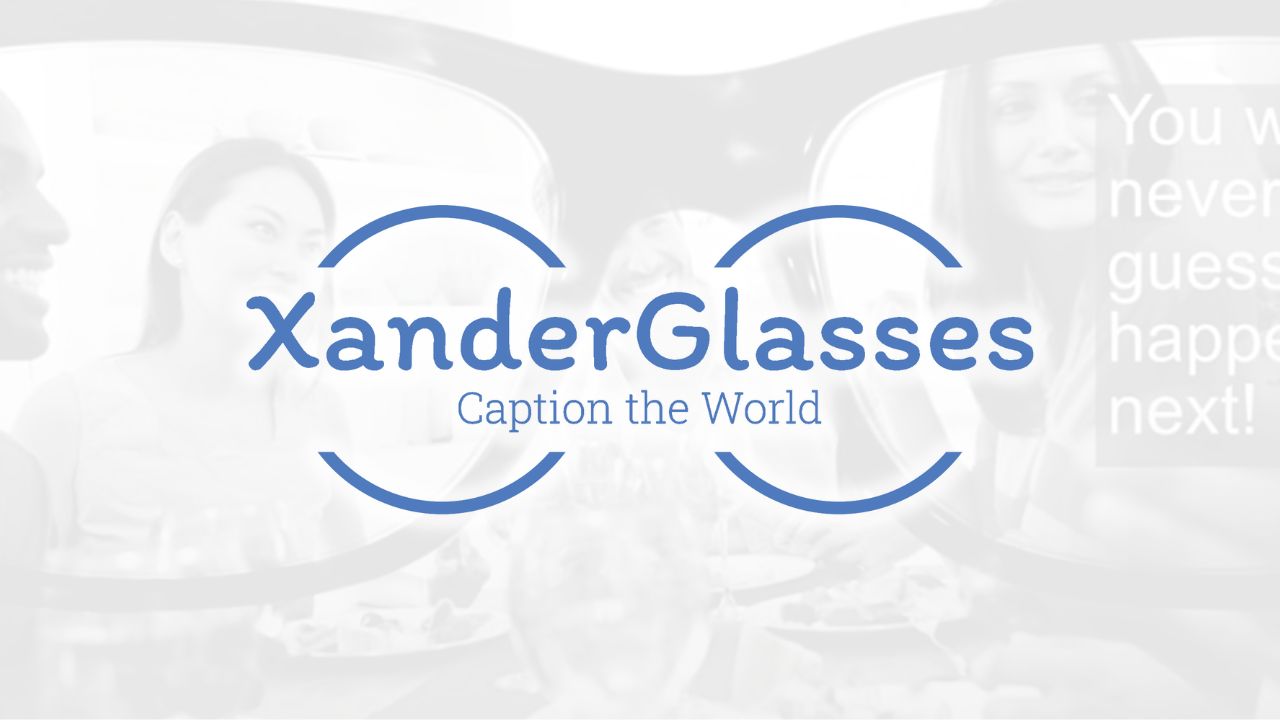Xander has announced that it raised $1.4 million in pre-seed funding. The round was led by distinguished electrical engineer Ray Stata, co-founder, former CEO and chairman, and current board member of Analog Devices, the internationally acclaimed and award-winning global semiconductor leader. Mark Ethier, co-founder and former CEO of iZotope, an industry-leading music and audio software company, 77, and additional angel investors also contributed to the round.
Raising this pre-seed round enables Xander to “accelerate the market launch of our first product, XanderGlasses — captioning glasses for the millions of people with hearing loss or auditory processing challenges who seek alternatives to hearing aids”.
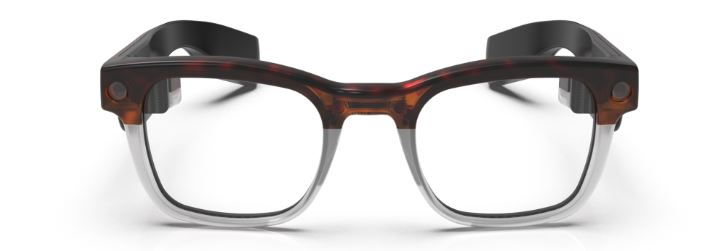
Front view of the premium model of XanderGlasses which feature Vuzix dual waveguide optics. Powered by Vuzix, this model provides a binocular display, so captions project before both eyes.
Alex Westner, co-founder and CEO of Xander, began his career in engineering, researching microphone arrays and the “cocktail party problem” — getting computers to pick out individual voices in a room — at the MIT Media Lab. He spent 18 years as a product leader in audio and music technology companies, shipping successful products that try to analyze and understand sound. In the last several years, he immersed himself in the most profound human problem related to audio — people who have trouble hearing altogether.
“48 million people in the U.S. struggle with hearing loss and that will increase as the population ages,” Alex explained. “Our team has spent countless hours with people of all stages of hearing loss, and XanderGlasses is the result of our customer-centered approach.”
Using Sight for Speech
XanderGlasses are aimed to address some of the drawbacks people encounter with assistive hearing devices by using the sense of sight to supplement how the brain processes speech. The smart glasses are lightweight, comfortable, and accurately translate speech to text in real-time, displaying captions of in-person conversations.
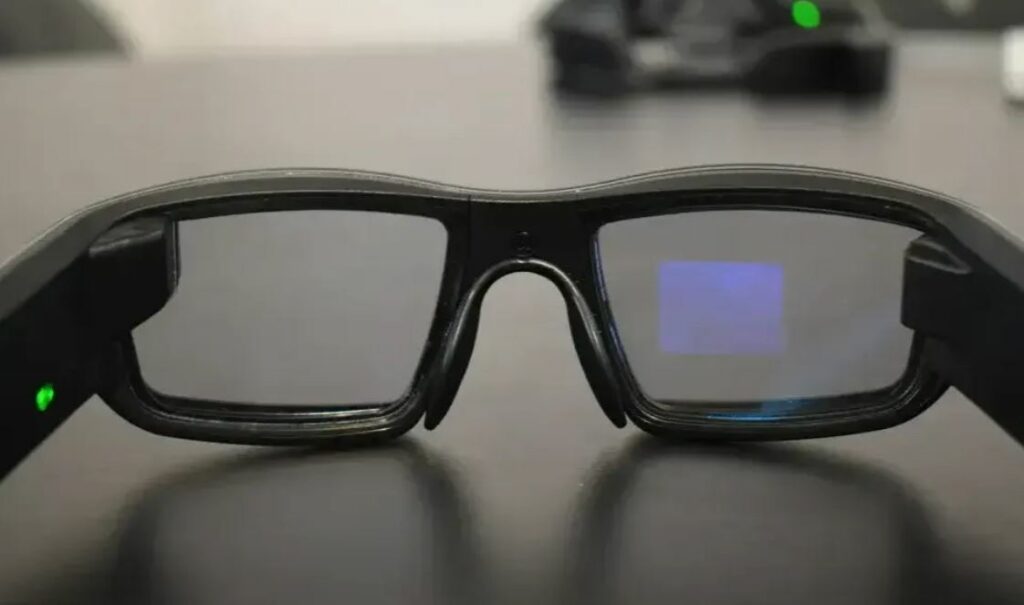
Wearer’s view from behind the standard model of XanderGlasses. The standard model is powered by Vuzix and provides a monocular display, so captions project in the distance, before the right eye.
Seeing captions can significantly improve cognition and understanding, especially in noisy environments and in difficult listening situations. Active listening in a conversation requires focus and engages more than hearing. Most people unconsciously observe other cues, such as facial expressions, to assist understanding. For people who are hard of hearing, Deaf, or have auditory information processing challenges, the captioning glasses “provide inobtrusive assistance and significantly improve understanding of speech during conversations”.
“If you can’t hear what others are saying, XanderGlasses can help you to see what others are saying.”
Alex Westner, Xander Co-Founder and CEO
What Makes XanderGlasses Unique?
The XanderGlasses function like a simple “on” and “off” device. They work anywhere people need them, whether at home, at work, or in a loud public setting.
In this augmented reality experience, captions display in the field of view of the wearer, which enables the wearer to look directly at the person they’re speaking with and refer to the captions as needed, “instead of fumbling with complicated screens”.
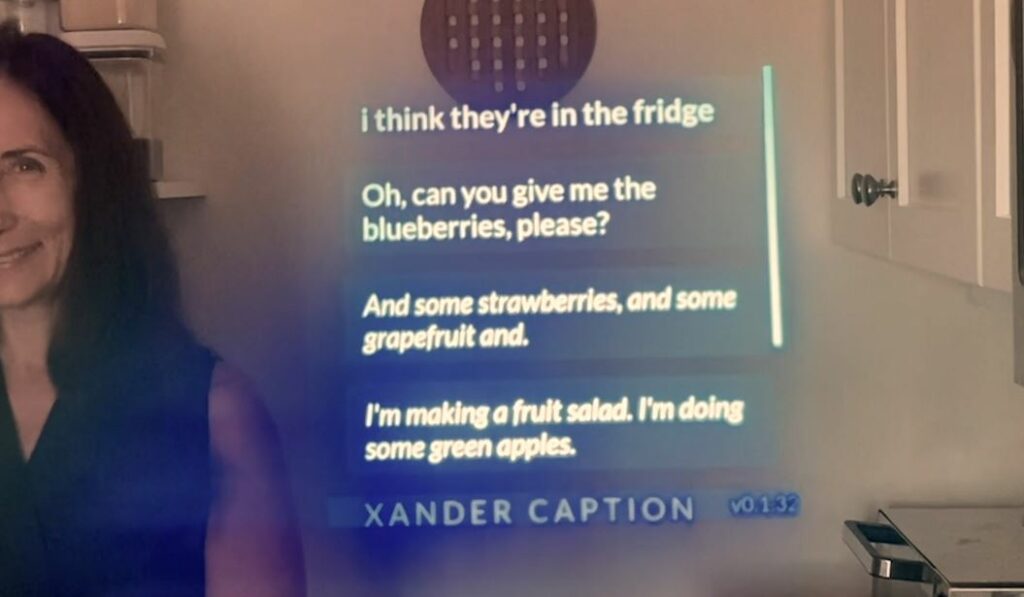
Screenshot of real-time captioning of a conversation from the wearer’s view with the standard model of XanderGlasses. The standard model provides a monocular display, projecting captions in the distance, before the wearer’s right eye.
As XanderGlasses don’t rely on smartphone or cloud connectivity, they are “remarkably reliable and private”.
The company recently unveiled its prototype at CES 2023 and had an “overwhelmingly positive response from people who tested the product”.
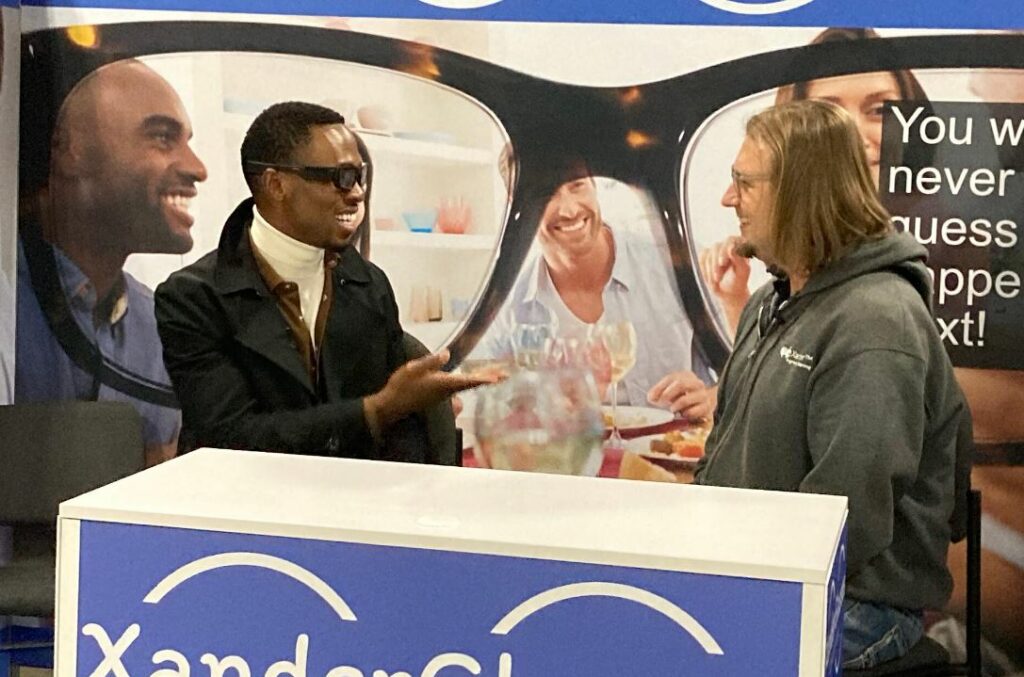
Dalvin Brown, Personal Tech reporter at The Wall Street Journal, interviewing Alex Westner about XanderGlasses during the media preview of CES 2023. Dalvin wore XanderGlasses during this portion of the interview, testing how they work.
Xander’s use of tech to improve the quality of life for older adults and people with disabilities has earned several awards. In late 2022, the company won a Catalyst Award from the U.S. National Academy of Medicine as part of the Healthy Longevity Global Competition. We won the Eureka Park Accessibility Contest sponsored by CTA Foundation at CES 2023 and won the Audience Choice Award at the CTA’s CES 2023 Pitch Contest. Xander was also finalist in the AARP’s AgeTech After Dark competition in 2023, and a finalist in the Eddies (formerly the New England Innovation Awards) in 2021.
VA Pilot, Commercial Launch Planned
The Xander team is launching a pilot with the Veteran’s Health Administration in February 2023. Thanks to this latest funding round, the company hopes to have two models of XanderGlasses available for purchase in mid-year 2023.
While pricing has yet to be finalized, the company says both models of its captioning glasses “will cost less than the average pair of hearing aids”.
Source: Xander



